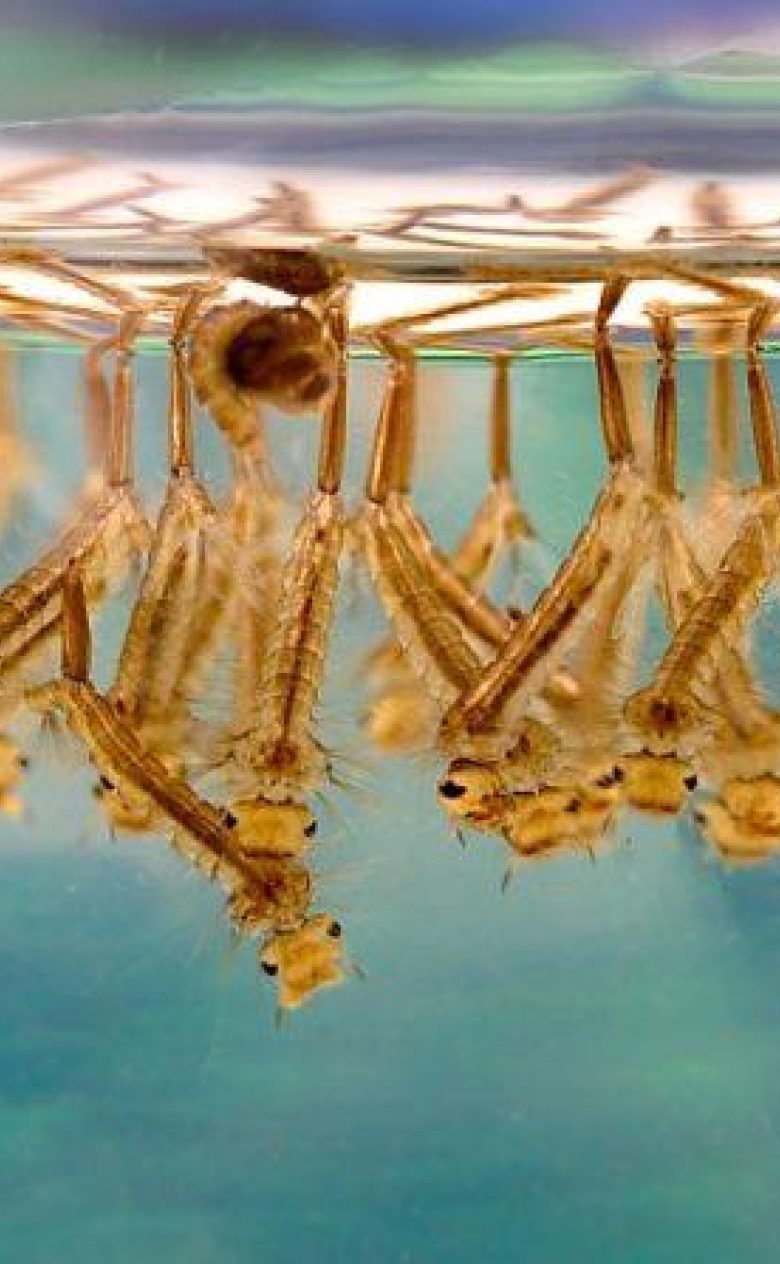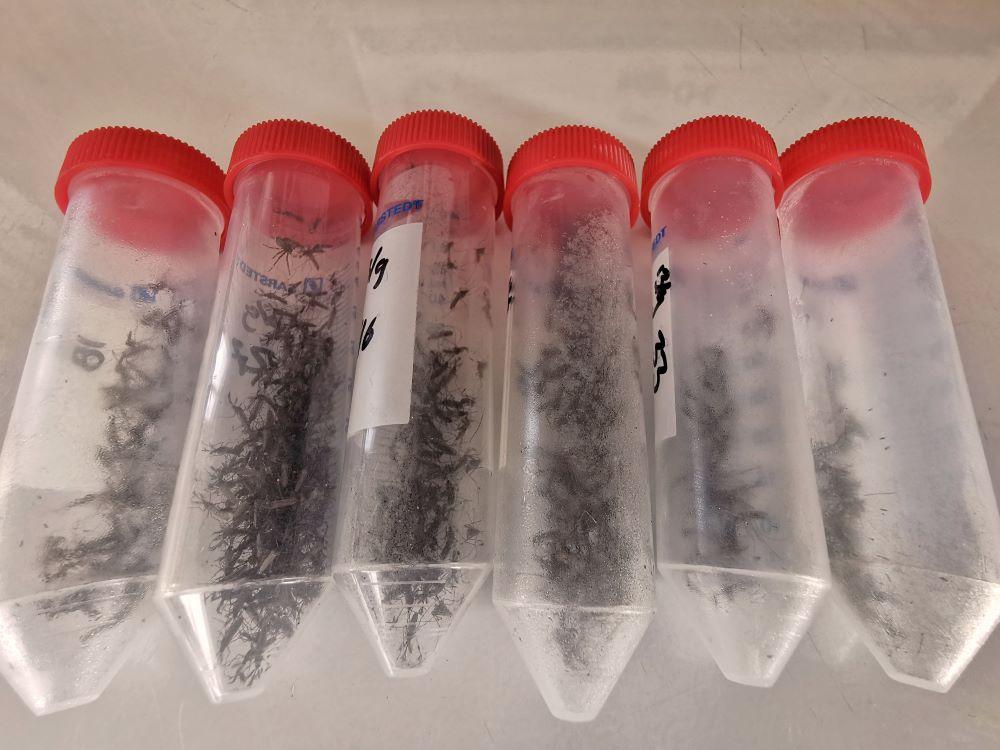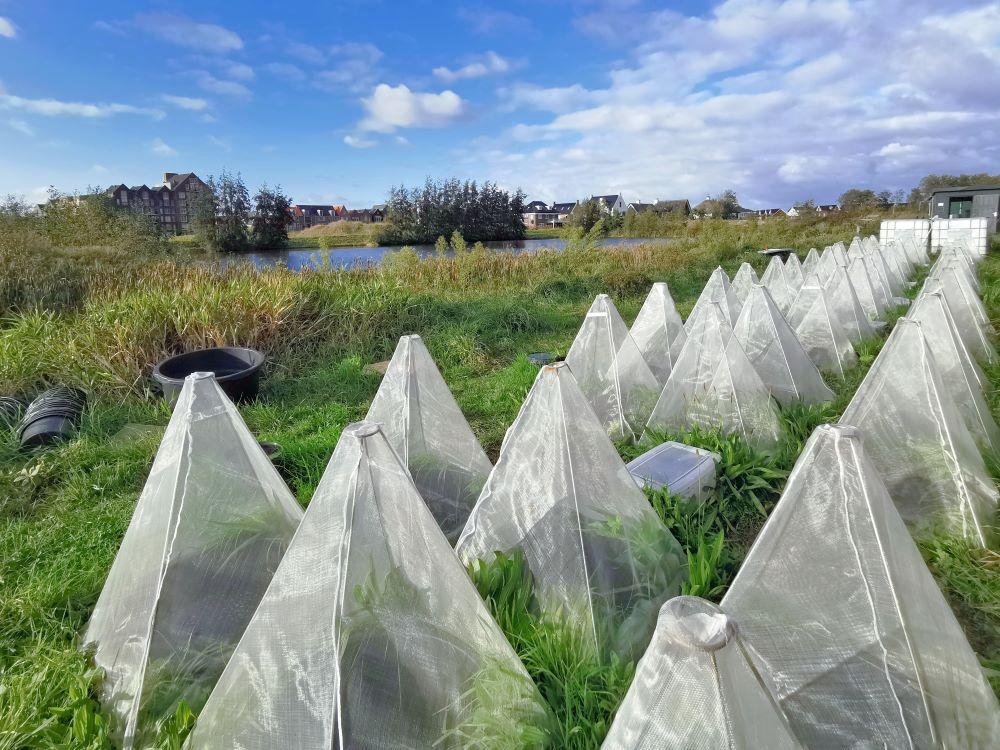Climate change in relation to vector borne diseases – One Health PACT
Outbreaks of (new) infectious diseases in humans and animals are occurring more often and worldwide. That is linked to various factors, such as international trade and travelling, population growth and climate change. In the Netherlands, a relatively large number of people, livestock and animals live near each other. Combined with our water-rich landscape and busy international trade and travel, this makes us vulnerable to outbreaks of infectious diseases.

Focus on changes that influence the development of outbreaks
Since 2020, Deltares has participated in the One Health PACT project of the Netherlands Centre for One Health, led by Erasmus MC. This project focusses on vector-borne diseases: infectious diseases transmitted by insects such as mosquitoes. As a result of climate change, exotic mosquito species are settling in the Netherlands. But under the right conditions, mosquito species native to the Netherlands can transmit (tropical) viruses too. The introduction of West Nile virus to the Netherlands in 2020 and the recent outbreak of Usutu virus among blackbirds demonstrates the importance of early preparedness for such diseases. That applies not only to the Netherlands but also the Dutch Caribbean and the rest of Europe.

Combining sciences and methods is indispensable
Within this project we have considered a wide range of topics in order to achieve a systemic understanding of vector-borne disease risk. This means that we don’t just look at mosquito dynamics, but also other animals which play a role in disease transmission, such as birds and livestock. We also look at the viruses themselves: the mechanics of viral transmission, how they behave within the host’s body and how we can better detect them. We also have people looking at how we can best detect and respond to future disease outbreaks.
The research in this project has largely been conducted by 26 PhD researchers at many different Dutch universities and research institutes. They work with other project partners, including researchers from Deltares, the National Institute for Public Health and the Environment (RIVM), the Netherlands Food and Consumer Product Safety Authority (NVWA), and the Dutch blood bank. Thus the outcomes will be translated into measures to ensure we are better prepared for a possible disease outbreak. The wide range of organisations and experts involved in this project allows for a combination of disciplines and methodologies, enabling us to get the best results. Researchers in this project perform a combination of field work, laboratory analysis and modelling to gain an in-depth understanding of the many different aspects of vector-borne disease risk. The project has also included citizen science projects, allowing the general public, as well as high school pupils, to be in volved with our work. For example, you can report mosquito sightings through the Mosquito Alert app or the Muggenradar website.

Deltares's role
Within the One Health PACT project, Deltares has focused on how mosquitoes are affected by their environment, how their populations are likely to change in the future and what this means for future disease risk. Together with Leiden University, we have performed small-scale field experiments to determine how mosquitoes are affected by temperature, nutrient availability, salinity, predators and other factors. We have also looked at a national scale to see how mosquito populations are influenced by land use, soil type, human population, pesticide use, climate, etc. To help us understand how mosquito populations might change in the future, we created 4 socio-economic scenarios for the Netherlands, considering how the country might change by 2050. These included changes in land use, agriculture, water management, lifestyles and more. You can read more about our scenarios here. We are now using these scenarios to predict future mosquito abundance. We then plan to work with researchers at Wageningen University and Research to estimate future disease risk.
Main results so far
- Eutrophication (i.e. increasing nutrients in water, leading to increased plant and algae growth) helps mosquitoes to survive during their development phase and makes them develop faster (link)
- Small forest patches provide good environments for both mosquitoes and birds, suggesting that these might be likely locations for disease transmission (link)
- Within urban areas, adults are most often found in parks, but eggs and larvae are more common in residential areas. This can help us develop more targeted and efficient strategies to mitigate and reduce mosquito nuisance (link)
All project publications can be found here.



